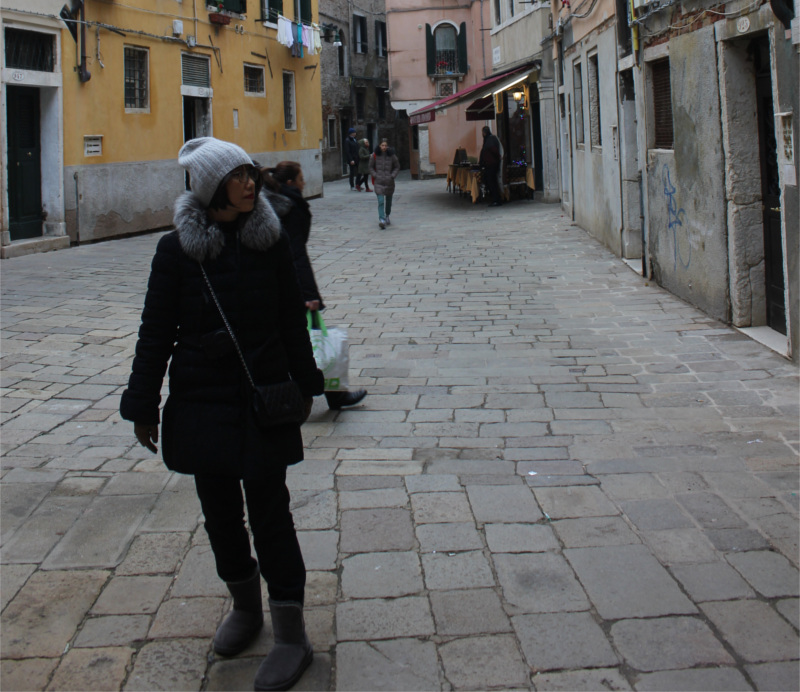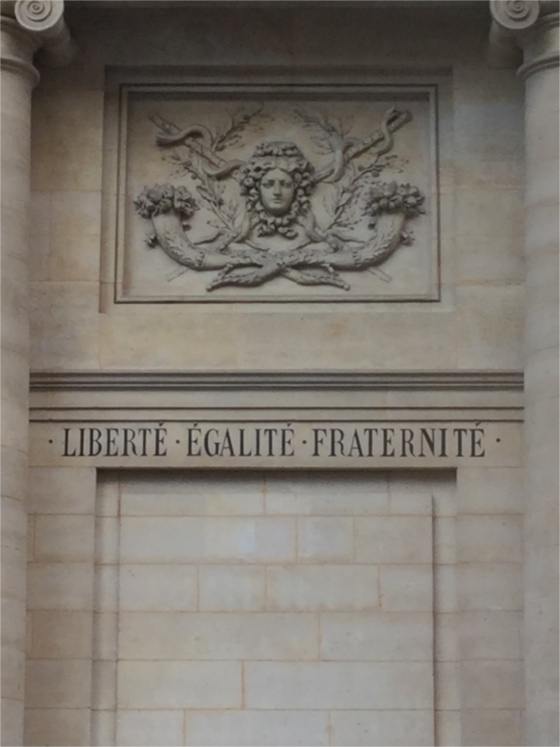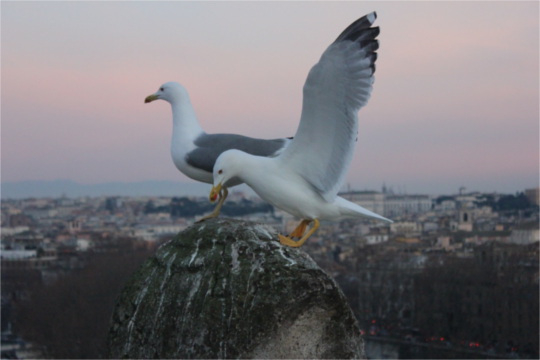News
Palgrave Publishers ebook Philosophy Division Top 25% of downloads
Mme de Staël and Political Liberalism in France
(2018, Palgrvave).Chinatsu Takeda

This book was among the top 25% most downloaded books in eBook Collection philosophy in 2019
Profile

Chinatsu Takeda,Ph.D
takedachinatsuEgmail.com
(Please use this email address by replacing E with @)
- Ph.D, European History, University of London
Professor, Otsuma Women’s University, Faculty of Comparative Culture, Tokyo - (Japanese site click here)
Background
Intellectual History of Modern France(History in terms of intersection among ideas, culture, and politics)
French Liberalism
Studies on Mme de Staël
I have essentially carried out research on nineteenth-century French liberalism with a specific focus on Staël as a political thinker. I have published a monograph entitled Mme de Staël and Political Liberalism in France (Palgrave) along with a co-authored book entitled Germaine de Staël: Forging a Politics of Mediation ed. by Karyna Szmurlo (SVEC volume 2011:12. Oxford University Press). For more details about my research on Staël and nineteenth-century French liberalism, please visit my books of this website.
I am also interested in travel writing as it unfolded in the form of novels, poems, essays and travel guides during the Romantic period in nineteenth-century Europe. My primary focus remains fixed on Staël with her innovative novel entitled Corinne or Italy. Although it may seem surprising today, this literary oeuvre was for long considered a travel guide on Italy more than just a novel by nineteenth-century European contemporaries. Staël introduced to the Europeans, the cityscapes, the natural surroundings, the ruins of Italy, as well as social customs and religious views of the Italians in the form of a travel guide.
I made an 18 days’ trip to Italy in the winter of 2018-2019, following Staël’s actual itinerary when she made a six-month trip to Italian cities such as Florence, Venice, Napoli and Rome for several months in 1803-1804 for the purpose of drafting a novel. Please visit the picture gallery of this site entitled “Staël, Corinne and Italy” as it presents pictures of Italy that I took on this occasion, tracing back the actual itinerary of Corinne’s voyage in Italy.
I am devoted to communicating history to the academic community, students as well as the wider public through various medium across national boundaries. While my specialty is concerned with French and European modern history, I am also keen on comparative perspective on Japan and Europe in matters of cultural and intellectual issues.
Professional History
- Professor, Faculty of comparative culture, Otsuma Women’s University, Tokyo, Japan(2014-)
- Visiting researcher, Tokyo University,(2011-2012)
- Visiting Professor, Columbia University, USA(2006-2007)
- Temporary lecturer of Japanese in ESIA (digital engineering university), Laval, France(2001-2002)
- Postdoctoral researcher in l’Ecole des hautes études en sciences sociales in Paris, France(2001-2002)
- A trilingual conference interpreter (Japanese, English, French)(1986-2001)
Education
- PhD Royal Holloway, University of London, Modern French History
- M.A., Women’s History, Royal Holloway, University of London
- Master of Political Science – Po Paris (I’institut d’études politiques de Paris).
- B.A. French studies, Faculty of foreign studies, Sophia University, Tokyo.
My Monograph
Mme de Staël and Political Liberalism in France (2018, Palgrave)
Review
- “In this elegant and lucid book, Chinatsu Takeda restores unjustly neglected thinker Germaine de Staël and her associative vision of politics to the history of French liberalism. It is essential reading.”
-Samuel Moyen, Professor of Law and History, Yale University, USA - “The liberal tradition in France is undergoing significant re-evaluation and this timely study of Germaine de Staël’s contribution to its development establishes both the importance of her political writing and the extent of her influence upon nineteenth-century successors. ”
-Malcolm Crook, Professor of French History, Keele University, UK - “Chinatsu Takeda’s well-researched book is a timely invitation to rediscover the richness of Germaine de Staël’s political thought and revisit the rich historiography of the French Revolution.”
-Aurelian Craiutu, Professor of Political Sciences, Indiana University, USA. - Palgrave Macmillan
- “Chinatsu Takeda, while undertaking to shed new light, is therefore a continuation of recent studies that have largely re-evaluated the historical and political scope of Staël’s thought. ” (translated from French). Gérard Gengembre
- (‘Tout en entreprenant d’apporter un éclairage nouveau, Chinatsu Takeda s’inscrit donc dans la continuité d’études récentes qui ont largement réévalué la portée de la pensée staëlienne sur les plans historique et politique.’ Gérard Gengembre)
- Gérard Gengembre, Francia Recensio, 2019-06-13
Book Excerpt

In this first monograph, I claim that Staël was among the most influential political thinkers in nineteenth-century France. To substantiate my argument, I analyzed her particular version of liberal political philosophy, its impact on nineteenth-century French political history and the historiography of the French Revolution.
Mme de Staël’s status in the history of European political thought remains paradoxical. On one hand, researchers continuously repeat that Staël’s political thought was neither deep nor analytical and that she was not a full-fledged political thinker. On the other hand, for more than two hundred years, people have continuously asserted that Staël’s political thought was influential.
This book challenges this mystery, my hypothesis being that this puzzling situation stems from the fact that we have not yet uncovered particular aspects of Staël’s political thought. Having extracted her particular version of liberal political thought out of her multiple texts, this book has also demonstrated that it influenced nineteenth-century French political history and historiography of the French Revolution.
I emphasize that constitutional features remain primordial in Staëlian political liberalism although she supplemented it with cultural and anthropological arguments after 1800.
I demonstrate that Staël’s particular version of liberal political thought exerted long-lasting influence via the doctrinaires such as Guizot, Rémusat and Prosper de Barante as well as the aristocratic branch of Orleanists under the Second Empire. I also assert that Tocqueville, who is considered an “isolated historian of his time”, was sensitized to aspects of Staëlian political liberalism.
I named Staël’s unique brand of liberalism communal liberalism. The main focus of communal liberalism is to reject separate spheres at the core of nineteenth-century classical liberalism. Instead, she proposed that it is only by linking these two fields organically through the medium of a tiny minority of social and cultural elite that the cultural and ethical diversity of individuals would be ensured without harming political sociability among citizens.
Rather than contrasting liberalism with either multiculturalism or republicanism, the book argues that Staël’s communal liberalism challenges the conventions of nineteenth-century political thought, notably through her assertion of the need to institutionalize an organic intermediary connecting the two spheres, an idea later advanced by thinkers such as Jürgen Habermas.
Offering a critical reappraisal of Staël’s multifaceted work, this book assesses the political impact of her work, arguing that the political influence of the “Considérations” permeates the liberal historiography of the French Revolution up to the present day.
Travel guide to Italy

Along with China, Italy boasts the largest number of world heritage sites. For this small peninsula to possess as many as 55 is impressive. There are so many things to visit in this beautiful country although it is impossible to visit them altogether. This is why it is sometimes easier to follow a compact set of information. The rubric entitled Italy on my homepage is far from exhaustive, though, inspired by Staël’s writing, it is designed to invite you to travel in Italy in a philosophical manner. I hope that it helps.

